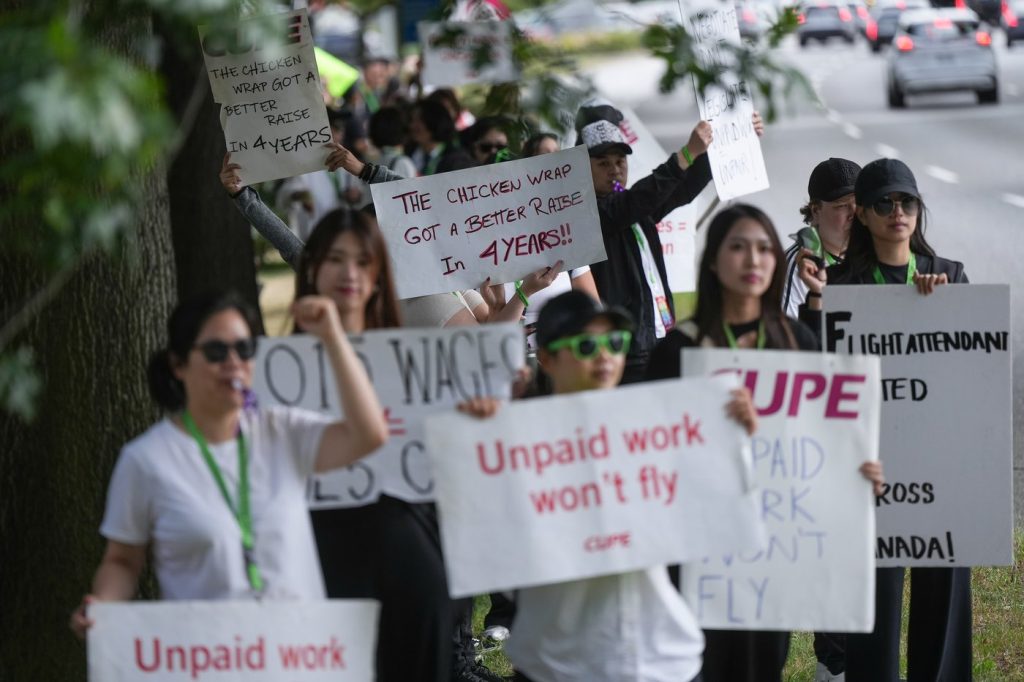TORONTO – A significant shift may be on the horizon for flight attendants as Air Canada is set to abolish the practice of unpaid ground time, joining a growing number of airlines that have already agreed to this change. This tentative agreement marks a crucial win for the Canadian Union of Public Employees (CUPE), which has made ending unpaid work a central issue in their negotiations for a new contract.
The announcement of this deal comes more than two years after CUPE initiated a campaign against the industry standard that has seen flight attendants receive no hourly wage during crucial periods such as boarding, pre-flight safety checks, and various delays. This practice has long been a contentious point within the airline industry, as flight attendants were often underpaid for significant portions of their workday.
Labour expert Steven Tufts, a professor at York University, highlights that the origins of this practice date back to a time when flight attendants had limited power within the industry. Airlines benefited from this system by maintaining cost stability, even though unions have fought for higher wages to help mitigate the impact of unpaid time. The ongoing difficulties faced since the COVID-19 pandemic have intensified these challenges, prompting flight attendants to rally together to end such practices more decisively.
The move by Air Canada to eliminate unpaid ground time follows in the footsteps of other major airlines. Notably, American Airlines made strides last year by securing pay for boarding time in their contract agreements. Similarly, Delta Air Lines began offering some level of ground pay in 2022, indicating a trend towards recognizing the importance of compensating flight attendants adequately for all facets of their work duties.
This progression reflects a larger shift within the airline industry as labor unions advocate for fair compensation and working conditions. Flight attendants have increasingly voiced dissatisfaction with being unpaid during times when they are expected to be actively engaged in their roles, laying the groundwork for much-needed reforms. As the industry evolves and faces new challenges, it remains to be seen how these changes will influence labor relations and employee satisfaction moving forward.
This report was first published on August 19, 2025. The developments concerning Air Canada's agreement and the broader implications for flight attendants throughout the industry represent a significant moment in labor negotiations and the advocacy for workers' rights.
Companies in this story: (TSX: AC)
By Ian Bickis, The Canadian Press











